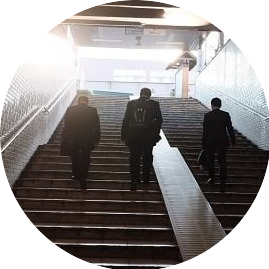When the COVID-19 pandemic subsides, expect to see the boss a little less around the office.
That’s one of the findings of a recent global survey tracking how business leaders and influencers are dealing with the pandemic—and what they plan to change in the workplace once the health threat has run its course.
The COVID-19 pandemic has spawned dashboards and surveys tracking everything from the prospects of second-wave infections to economic consequences of the virus. Now, a global survey of more than 2,000 high net worth individuals and business executives offers rare insight into the mindset of business leaders, including details of their mental well-being, their plans for employees and workplaces, and even how they’ll address their carbon footprints post-pandemic.
Article snapshot: The COVID-19 pandemic is inspiring executives and influencers worldwide to rethink their personal wellbeing, and in turn, adjust workplace practices.
Breaking the Grip of Uncertainty
The primary aim of healthcare provider Bupa Global’s “Executive Wellbeing Index” was to take stock of leaders’ mental states across the US, the UK, France, Egypt, the UAE, China, and Hong Kong. In the process, the study revealed much more, creating a fascinating mosaic of executive outlooks. And—not surprisingly when it comes to business attitudes—geography matters.
Take the economic impact of COVID-19. While survey respondents in all countries believe in what you might call a home-court advantage, the size of such favouritism varied widely by location. In the US, 27 percent of executives were optimistic about the domestic economy, while just 22 percent were upbeat about the global economy. In France, 40 percent were hopeful about the domestic economy, while just half as many were optimistic about global prospects. And in Egypt, 57 percent felt good about the country’s prospects, but just 18 percent had faith in the worldwide economy.
Despite having higher hopes for their home economies, executives did not report a general optimism, and their skepticism is likely rooted in pandemic-related uncertainty. To combat the lack of information, some forward-looking business leaders have turned to location technology for local and multinational data during the pandemic.
For example, this gallery of COVID-related smart maps provides location-specific data on everything from pharmaceutical companies working on a vaccine, to virus patterns in Europe, to a business status dashboard for various counties across the US.
Executive Wellbeing: Working on the Work-Life Balance
In the area of wellness, the survey found that work-life balance would likely change for high net worth individuals and business executives. On a personal level, 93 percent said they would strive to improve their balance post-pandemic, with nearly 30 percent planning to work from home most of the time.
By region, intentions varied widely. In Hong Kong, for instance, COVID-19 inspired a mere 35 percent of business leaders and influencers to re-evaluate their work-life balance; in China the number was 47 percent. In France and Egypt, 71 percent were taking stock.
Executives’ evolving personal habits are likely to influence their plans for employees. Here, too, a respondent’s location seemed to shape their plans. US executives were most likely to express interest in rethinking office space and infrastructure plans—suggesting that some employees might end up working from home permanently or on a semi-permanent basis. That inclination was much less common in the UK (28 percent) and Egypt (29 percent).
Building on their personal experiences, many business leaders are finding that the location technology responsible for delivering clarity on COVID-19 conditions is also helping shape the new era of work. Geographic information systems (GIS) are helping office planners create safe seating plans and work schedules, empowering remote workers to check in via mobile devices, and enabling executives to see at a glance where stores are open and how employees are distributed across a network.

Forty-five percent of business executives and influencers vow to maintain a slower pace in their lives once the COVID-19 threat is resolved.
A Secondary Consequence and a Silver Lining
The most profound consequence of COVID-19 has been its impact on health—in September 2020, the worldwide death toll surpassed 1 million people. But the pandemic has also upended norms in the workplace and society, and challenged people to reprioritize their lives. Optimists might see this as a silver lining with possible long-term benefits.
For instance, Bupa Global found that a quarter of executives plan to reduce international travel in the post-COVID era to lessen their carbon footprint. That could serve two goals—increasing social responsibility and improving executives’ wellbeing. To add accountability to that effort, a C-suite sponsor might work with a location analyst to track travel by the executive team and employees. Visualizing carbon impacts on a map could strengthen executives’ commitment to positive change.
Trimming carbon footprints is just one of many ways executives might adjust. Across the globe, 61 percent of leaders and influencers said they will continue to use business practices developed during the pandemic. Armed with an appetite for change and technology to support their plans, they may end up writing a positive footnote for an otherwise grim chapter in history.
Photo courtesy of #WOCinTech Chat.
This article was originally published in the global edition of WhereNext